November 24, 2025 | 00:32 GMT +7
November 24, 2025 | 00:32 GMT +7
Hotline: 0913.378.918
November 24, 2025 | 00:32 GMT +7
Hotline: 0913.378.918
This was the content at the seminar "Promoting Sustainable Production and Consumption through Eco-Labels," jointly organized by Tien Phong Newspaper and the Vietnam Environment Administration under the Ministry of Agriculture and Environment (MAE) on August 27.
According to Mr. Le Hoai Nam, Deputy Director General of the Vietnam Environment Administration, green labels and eco-labels are important environmental policy tools that have been successfully implemented in countries such as South Korea, Japan, China, Thailand, and European countries.
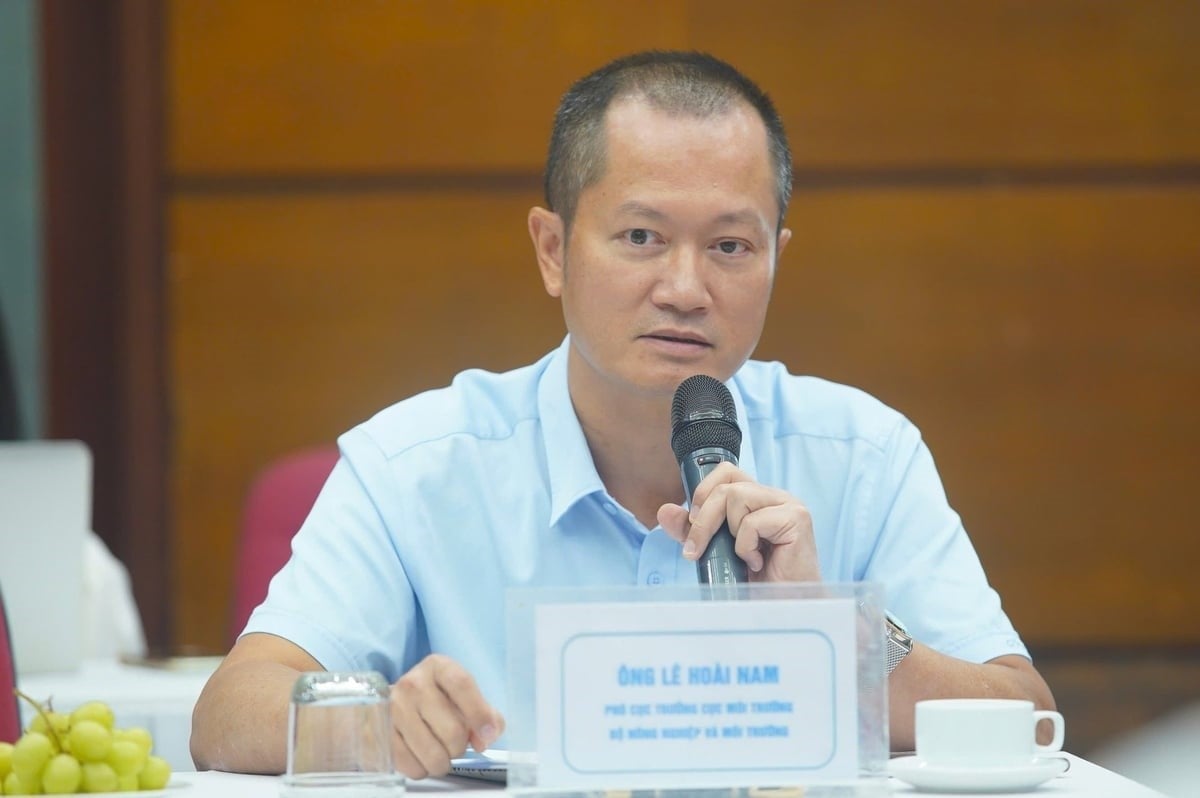
Mr. Le Hoai Nam, Deputy Director General of the Vietnam Environment Administration, said that green labels and eco-labels are important environmental policy tools. Photo: Nguyen Hoai.
These tools help enterprises shift from producing polluting goods to green products while supporting consumers in accessing eco-friendly goods that safeguard health.
In 2009, a pilot program on green labels was launched, focusing on two product groups certified with the Vietnam Green Label and eco-friendly plastic bags (including biodegradable and recycled bags). The MAE issued specific criteria for these groups. By 2017, 17 criteria for the Vietnam Green Label had been announced, serving as the basis for certifying environmentally friendly products. Of these, seven criteria were applied to certify the Vietnam Green Label for 112 product types. In 2024 and 2025, an additional 13 products received eco-label certification.
Analyzing the limited number of products certified with eco-labels, Mr. Nam noted that the main reasons lie in the weak capacity of domestic enterprises, lack of resources for technological innovation, unclear incentive policies, and regulations that often stop at the law without detailed guidance.
"For instance, the law stipulates an environmental protection tax of VND 40,000/kg on non-biodegradable plastic bags to restrict production and encourage the use of biodegradable bags. However, in practice, many small facilities evade taxes and continue to produce these bags," Mr. Nam explained.
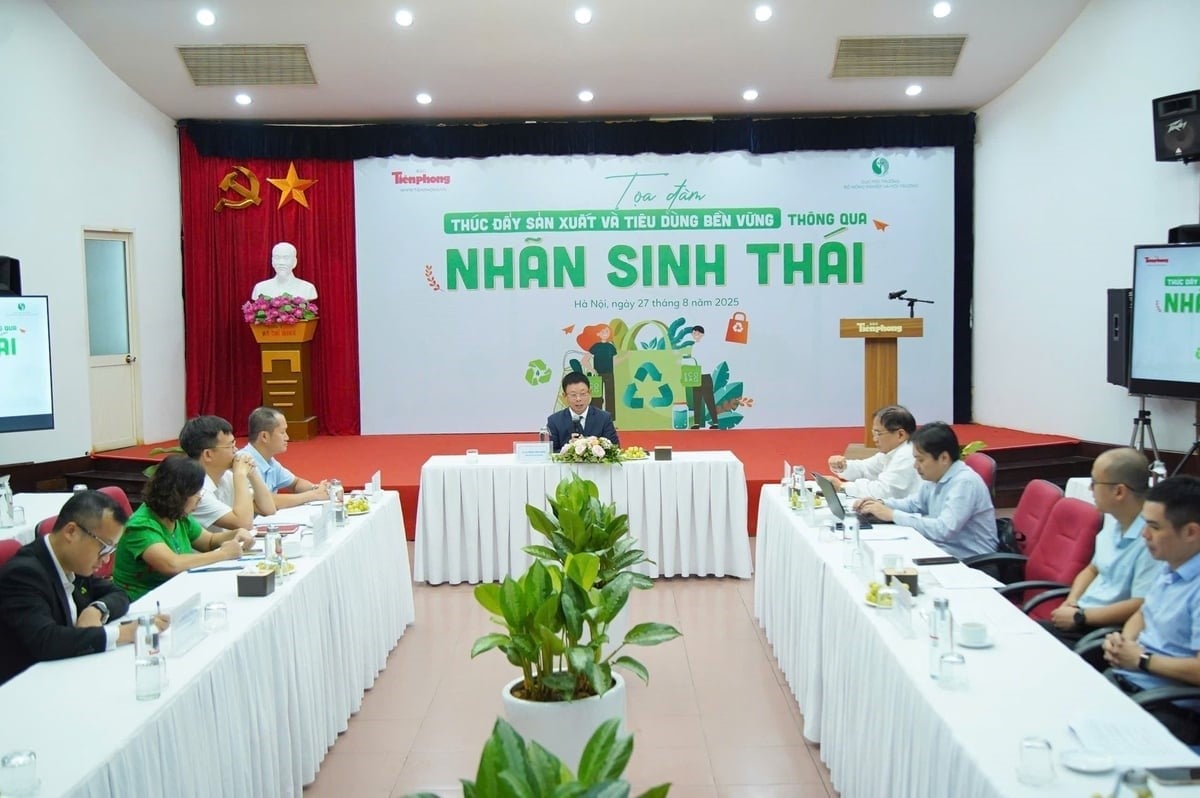
The seminar "Promoting Sustainable Production and Consumption through Eco-Labels" aimed to address existing challenges, seize new opportunities, and spread the value of eco-labels, contributing to a greener, cleaner, and more sustainable environment. Photo: Nguyen Hoai.
The story of eco-labels is not new. Even before the introduction of the Law on Environmental Protection and policies on environmental taxes and fees, the issue had already been raised. However, the implementation of eco-labels still faces many aspects that require further discussion.
Mr. Nguyen Trung Thang, Deputy Director General of the Institute of Strategy and Policy on Agriculture and Environment, stressed the need for a comprehensive set of solutions to develop the market for eco-labeled products, based on two parallel directions: stimulating demand while supporting the growth of supply.
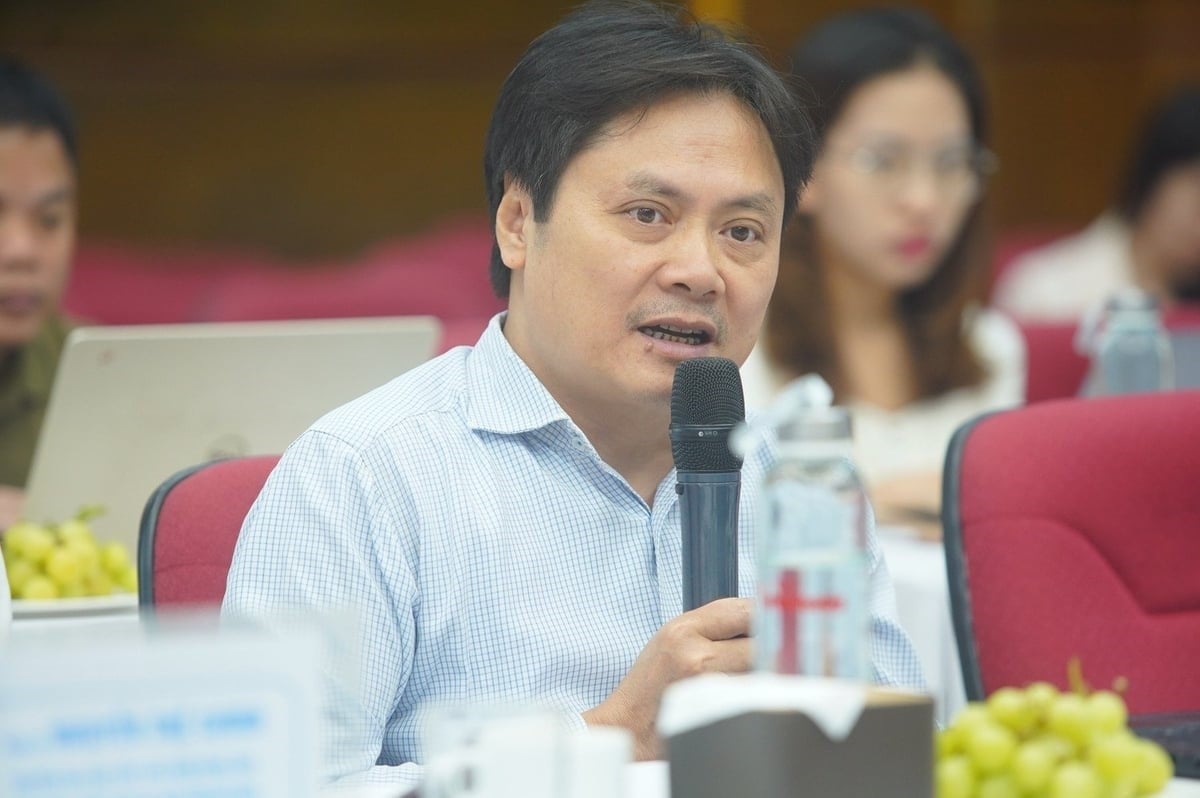
Mr. Nguyen Trung Thang, Deputy Director General of the Institute of Strategy and Policy on Agriculture and Environment, emphasized the need for a comprehensive set of solutions to develop the market for eco-labeled products. Photo: Nguyen Hoai.
According to Mr. Thang, the State should focus on completing institutions, creating a "playing field," and establishing a sufficiently attractive market for eco-labeled products.
Specifically, the State should develop sets of criteria suitable for each product category, aligned with the roadmap for green transition and domestic consumer demand. This would make it easier for businesses to apply and for buyers to recognize eco-labeled products.
In particular, policies and legislation must be designed to facilitate enterprises in the eco-labeling process. A clear, coherent, and stable regulatory framework, accompanied by specific implementation guidelines, is essential to help businesses proactively meet criteria, reduce certification obstacles, and bring products to market.
Mr. Thang also recommended administrative reforms to enable businesses to more easily access support projects and preferential financing for green development. Simplifying documents, shortening processing times, and strengthening digitalization of procedures would reduce compliance costs, thereby stimulating both supply and demand for eco-labeled products. He further suggested that the role of eco-label certification should be transferred to independent organizations rather than being handled directly by state agencies.
Sharing the same perspective, Dr. Nguyen The Chinh, senior researcher at the Institute of Hydrometeorology and Climate Change, noted that the implementation of eco-labeling must first consider the role of enterprises—the direct actors in this process.
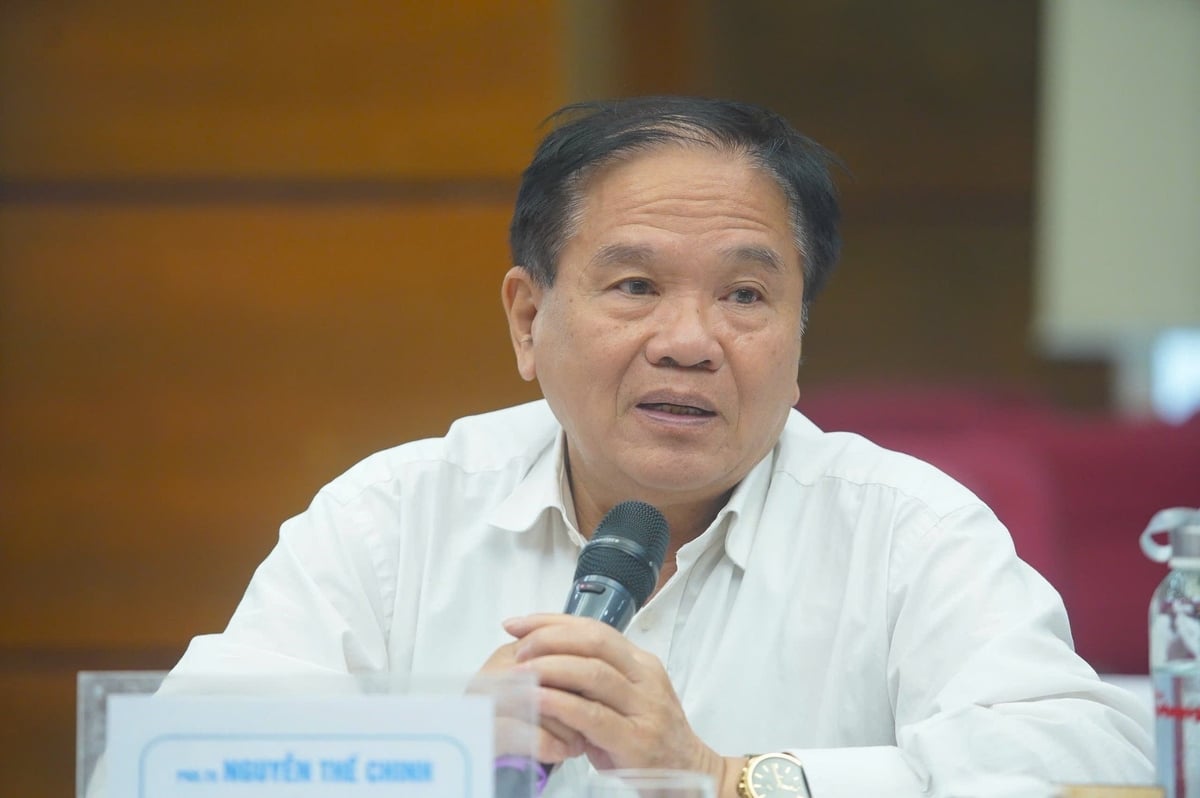
According to Dr. Nguyen The Chinh, businesses must take the lead in developing eco-labeled products. Photo: Nguyen Hoai.
The transition from unlabeled products to those meeting eco-label standards is a long process that requires substantial investments in technology, raw materials, processes, and awareness. Mr. Chinh cited examples such as rose-based lipstick carrying the European eco-label, which has a selling price several times higher than conventional products, or Japanese computer screens that had to upgrade from ISO 9000 to ISO 14000 to meet environmental standards. This transformation demands significant costs and technological resources.
Beyond businesses, the consumer market also plays a crucial role. Communication strategies and promotional campaigns are needed to build public trust and encourage the choice of eco-labeled products.
The third factor is policy. Although the Law on Environmental Protection and its guiding documents have established a legal framework, implementation still faces delays and bottlenecks. According to Mr. Chinh, stronger policy linkage and clearer mechanisms are required so that businesses can both understand and possess the capacity to apply eco-labels in a meaningful way.
According to Ms. Trinh Thi Hong Loan, representative of the Vietnam Retailers Association, expanding the production and consumption of eco-labeled products requires Vietnam to quickly perfect the legal framework and support policies for enterprises. Most importantly, the certification process must be transparent, with preferential tax mechanisms and even cost-sharing for labeling, as practiced in some countries where up to 50% of the expenses are subsidized. In reality, after two years, only 13 enterprises have participated, which is a modest figure.
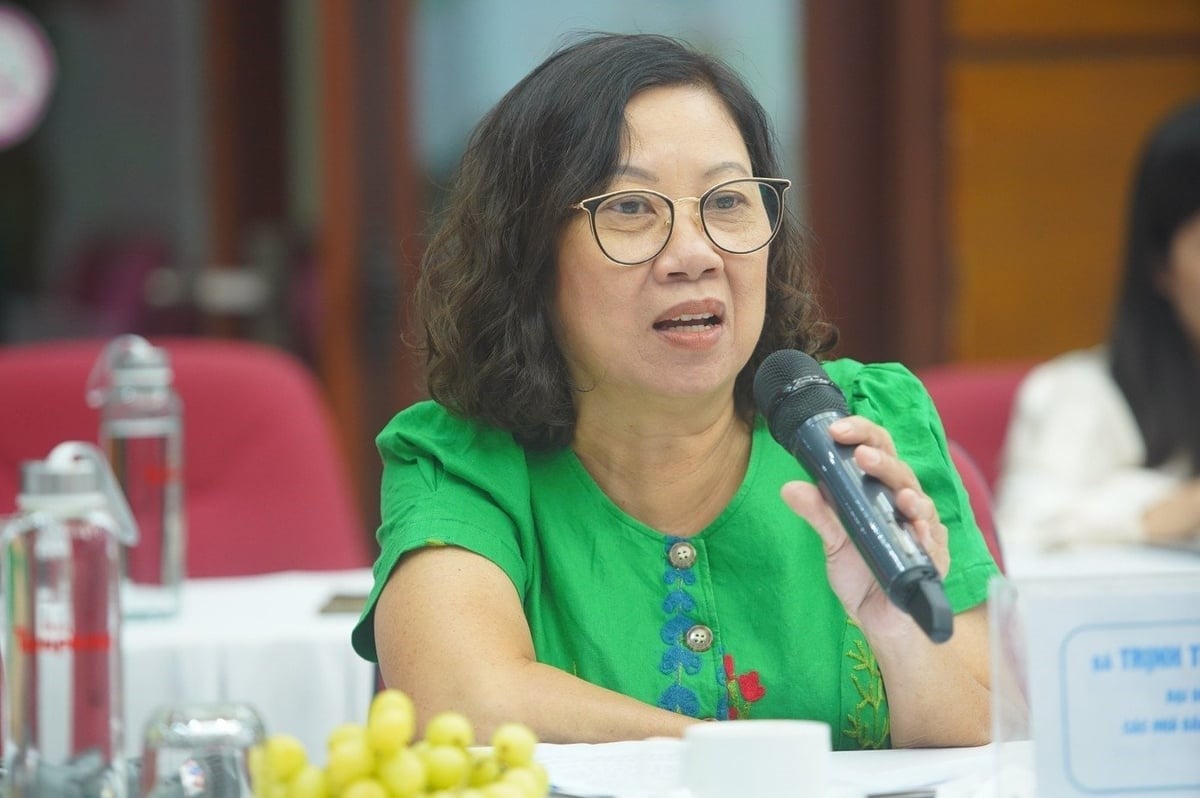
Ms. Trinh Thi Hong Loan suggested that communication must be strengthened so that both businesses and consumers understand the benefits of green products. Photo: Nguyen Hoai.
In parallel with support policies, communication must be strengthened so that both enterprises and consumers, especially younger generations, understand the benefits of green products, which are reducing harmful chemicals and protecting the environment. Some companies have already begun focusing on eco-labeled products and launched discount programs to encourage purchases.
In its role, the Vietnam Retailers Association has advised its members to monitor the supply chain, prioritize suppliers offering eco-labeled products, and coordinate with functional agencies to expand sources of goods, enhance competitiveness, and reinforce consumer trust. Recently, the Association has also cooperated with market management authorities to inspect and supervise distribution, ensuring transparency and reputation for certified products.
Ms. Loan stressed that, alongside enterprise support, it is essential to spread green consumption habits, particularly limiting the use of plastic bags, thereby contributing to sustainable environmental protection.
Translated by Thu Huyen

(VAN) The agricultural sector is finalizing the strategic framework for emission reduction, setting the goal of sharply cutting methane and 403.7 million tons of CO2 equivalent and moving toward Net Zero by 2050.
/2025/11/22/2236-1-153832_483.jpg)
(VAN) The National Marine Spatial Planning is opening up opportunities for sustainable blue sea development across 21 coastal localities.

(VAN) Viet Nam’s forestry sector is undergoing a comprehensive transformation, strengthening management, protection, and development efforts to maintain ecological security and drive green, sustainable growth.

(VAN) Viet Nam is accelerating efforts to digitize reservoir operations, from real-time data to hydraulic modelling.
/2025/11/21/3348-2-102623_454.jpg)
(VAN) National Assembly delegate Nguyen Thi Lan has proposed adding special mechanisms to attract human resources to the agricultural, forestry, and fishery sectors, addressing the shortage of high-quality personnel.

(VAN) Over the past two decades, the unified legal framework for water resource management has been perfected, becoming a crucial foundation for ensuring national water security.

(VAN) The land-data cleansing campaign in Dien Bien is entering its final stretch, yet weak infrastructure, limited personnel and fragmented multi-period datasets continue to create major obstacles.